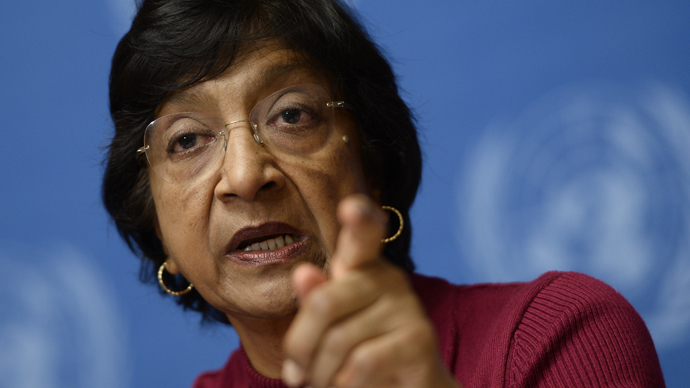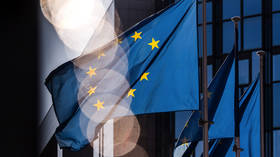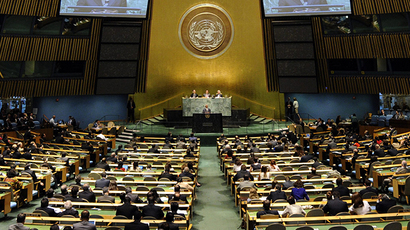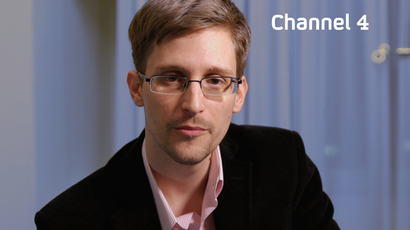Online privacy demands global action, just as with apartheid - UN human rights chief

United Nations Human Rights Commissioner Navi Pillay has associated the global response to government mass surveillance with the collective uproar that eventually helped cripple South Africa’s apartheid regime.
Pillay, the UN's High Commissioner for Human Rights and a South Africa native, said in an interview aired on Thursday that just as international pressure helped end apartheid in her home country, so must widespread condemnation of intrusive spying help boost online privacy rights. Pillay was the first non-white woman to serve as a High Court judge in South Africa.
"Combined and collective action by everybody can end serious violations of human rights,” she said in an interview with BBC Radio 4. “That experience inspires me to go on and address the issue of internet [privacy], which right now is extremely troubling because the revelations of surveillance have implications for human rights...People are really afraid that all their personal details are being used in violation of traditional national protections."
Pillay is tasked with preparing a report for the UN on digital privacy protections following the cascade of revelations supplied by former National Security Agency contractor Edward Snowden regarding the American spy agency’s global surveillance apparatus.
The South Africa native has defended electronic freedoms in the past, both before and after Snowden’s leaks were unveiled in June.
“The broad scope of national security surveillance regimes in countries including the United States and the United Kingdom, and the impact of these regimes on individuals’ right to privacy and other human rights, continues to raise concern,” Pillay said during a speech to the UN Human Rights Council in September. “Laws and policies must be adopted to address the potential for dramatic intrusion on individuals’ privacy which have been made possible by modern communications technology…”

In February 2012, she denounced restrictions on internet access and the wanton detention of bloggers while insisting that governments which monitor criminal activity online must not abuse such power against activists.
"Bloggers and human rights defenders who legitimately exercise their right to freedom of expression continue to be arbitrarily arrested, tortured and unjustly sentenced to imprisonment on the pretext of protecting national security or countering terrorism," Pillay said.
"[T]here is also a real concern that methods to identify and track down criminals may be used to crack down on human rights defenders, suppress dissenting voices and withhold 'inconvenient' information,” she added.
In December 2010, following Wikileaks’ publishing of thousands of classified US documents supplied by US Army Pvt. Chelsea Manning, Pillay defended the whistleblower website against tactics used by the US government and others to pressure third parties against facilitating Wikileaks’ operations.
"I am concerned about reports of pressure exerted on private companies including banks, credit card companies and Internet service providers to close down credit lines for donations to WikiLeaks, as well as to stop hosting the website," she said in Geneva.
"If WikiLeaks has committed any recognizable illegal act then this should be handled through the legal system, and not through pressure and intimidation including on third parties," Pillay added.
Pillay, also a former international criminal court judge, told the BBC that her experience with grave human rights abuses - including her service during the Rwanda genocide trial - does not taint or devalue her views of online protections.
"I don't grade human rights," she told Berners-Lee, who was guest editing BBC Radio 4's ‘Today’ program. "I feel I have to look after and promote the rights of all persons. I'm not put off by the lifetime experience of violations I have seen."
Last week, the UN General Assembly unanimously approved a resolution spurred by NSA targets Brazil and Germany, which stated "the same rights that people have offline must also be protected online, including the right to privacy.”
It implores the UN member states "to review their procedures, practices and legislation regarding the surveillance of communications, their interception and collection of personal data, with a view to upholding the right to privacy of all their obligations under international human rights law.”
The resolution is also the impetus for Pillay’s forthcoming report on internet privacy "in the context of domestic and extraterritorial surveillance...including on a mass scale.”
She said on BBC that it was "very important that governments now want to discuss the matters of mass surveillance and right to privacy in a serious way.”














